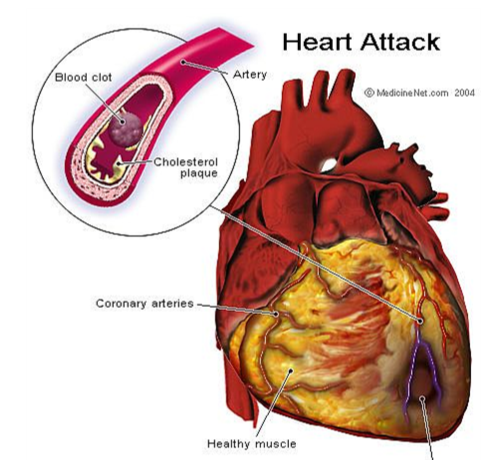Eating fat causes heart disease, right? If you have read this blog at all, you should know that it is not fat that causes heart disease, but eating sugar (and foods that act like sugar) and vegetable oils.

The benefits of eating fats (the right fats) are obvious:
- Fat is good for your blood sugar (fats don’t increase blood sugar at all and will actually slow down the absorption of the sugars that you do eat).
- Fats are a good source of energy in your body. Ketones (breakdown products of fats) are just as important as an energy source as glucose.
- Fats are essential to make hormones, the walls of every cell in our bodies, and are used as protection, insulation and fuel.
Despite the benefits of eating good fats, there may still be this nagging notion in the back of your brain saying that all this fat you are eating cannot be good for your heart. It is a hard idea to shake, so let’s take a trip down fatty-acid-lane and look at the fats that course through your veins and see what research (not politics) says about these fats and what they mean for your heart.
Blood Fats
There are many types of fats that flow through your veins. You may know some of these (like cholesterol, HDL, LDL, triglycerides) and you may have heard that some of these fats are good for you and some are not. What might surprise you, though, is that most of what you have been told by your medical doctor is wrong and following their advice can have a big impact on your health. Let’s look at what these fats mean to your health (and the blood fat you should really be paying attention to) and what causes them to rise and fall.
Cholesterol
You have probably heard that you should watch your cholesterol level, but have you ever wondered why? Medical scientists claim that you need to keep your cholesterol under control if you want to keep from getting a heart attack, but nothing could be farther from the truth. A 2009 study of over 130,000 people who were hospitalized for heart attack showed that nearly 75 percent had cholesterol levels that were normal, based on current national cholesterol guidelines. I don’t know about you, but if I have a standard that only predicts 25 percent of heart attacks, then I have the wrong guidelines.
From my perspective, the focus on cholesterol levels is easy to explain: there are drugs that can change cholesterol levels, but other, more reliable, indicators of heart heath cannot be changed by anything other than diet.
LDL and HDL
You may have also heard that keeping your LDL low and your HDL high. This so-called HDL/LDL ratio turns out to be an oversimplification. In the body there are differently sized LDL particles. Some LDL are small and some LDL are big and puffy. The big and puffy LDLs are actually good for you and the small tiny LDLs are not.
Want to take a guess where you get big LDL particles from? Eating fat. Where do small LDL particles come from? Eating carbohydrates. The reason you don’t know about small and large LDL particles is because the testing for these molecules is hard and expensive (something your medical doctor could never order).
You have also probably guessed that there are no drugs that can change the size of LDLs and you are right.
So, if you can’t get a test for large LDL particles, how do you know if you are headed in the right direction? There is a good stand-in for large and small LDL particles and that is your triglyceride levels.
Triglycerides
Triglycerides are the fat in your body you should be the most worried about, even though no one is mentioning this important fact. Where do triglycerides come from? Most triglycerides come from the sugar that we eat. Once your body has used and stored all the sugar that it can, it packages up that excess sugar into triglycerides. These triglycerides are then stored in our hips, thighs, and butts.
If you are guessing that there are also no drugs or supplements to treat high triglycerides, you are right. The good news is that scientists have discovered it that there is a direct relationship between small LDL particles and the amount of triglycerides in your body. High triglycerides in your body equal high small LDL particles.
The take home from all this fat science? If you want good fats running around in your blood, keep the amount of carbohydrates you are eating to a minimum.















Was wondering if Stevia has the same effect in your body that sugar does? Thanks, Love your site. I’m into The Grain Brain as well.
Julie,
Stevia has no impact on blood sugar. I would say using it can lead to continuing your cravings for super-sweet foods, so it is better to avoid during the 30 Days, or use it only occasionally.
Love the Grain Brain book!
Check out this post for more info:
Thanks for your comments!
Dr. Scott
Loved this article!!!!great to stay connected my friend xoNiki Price